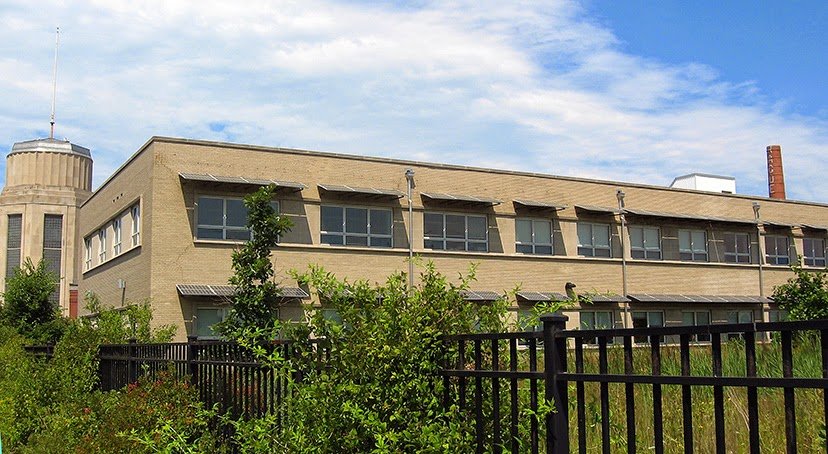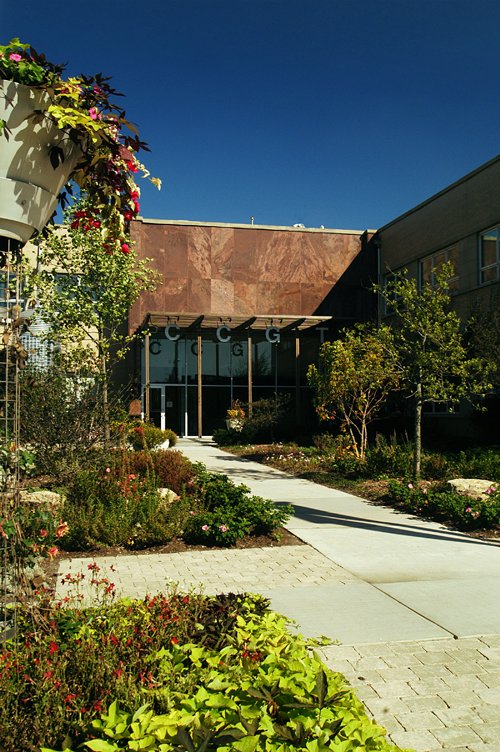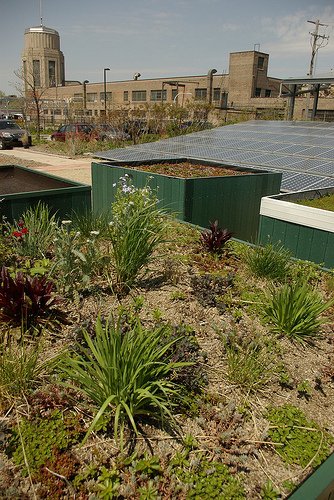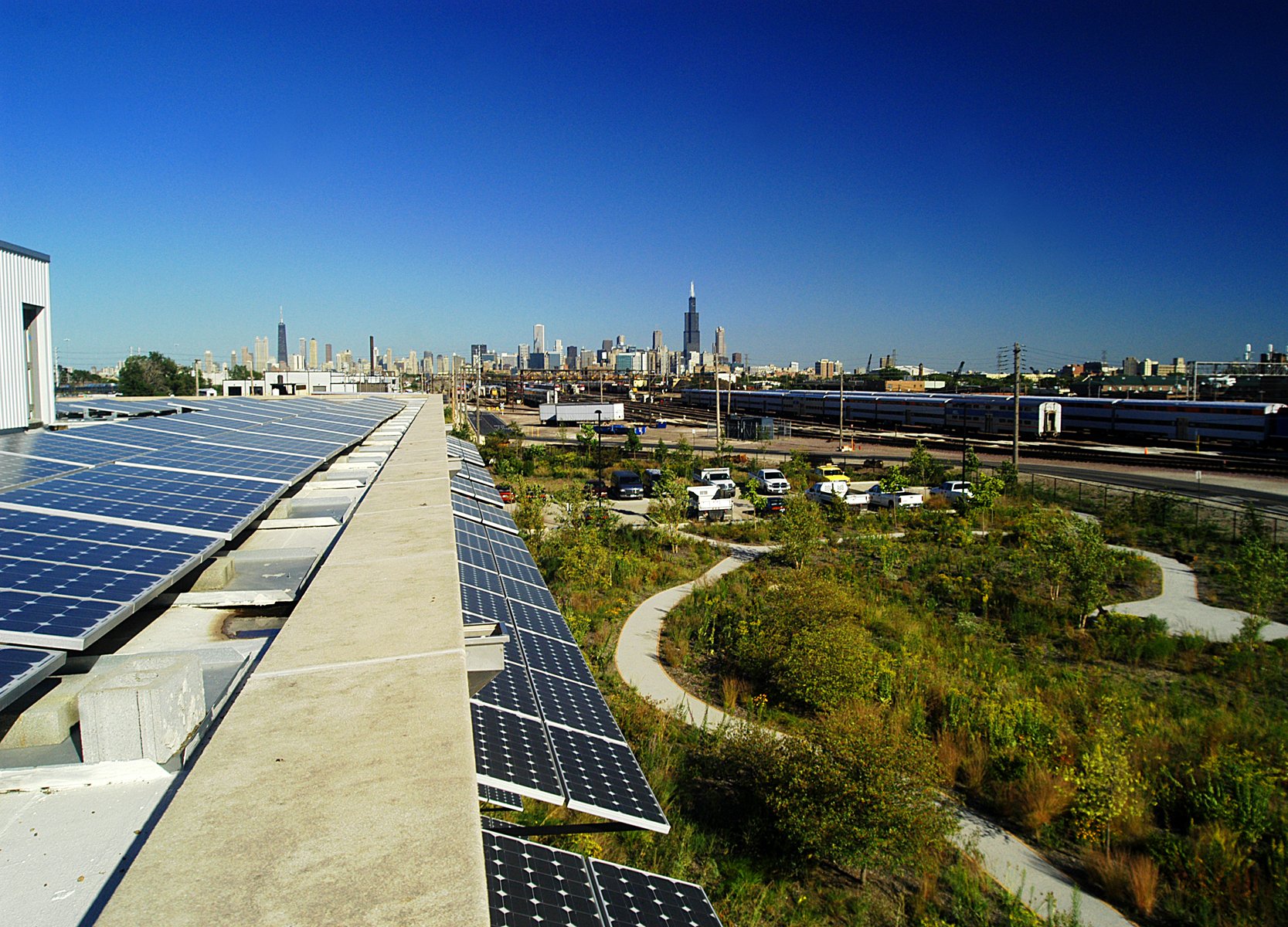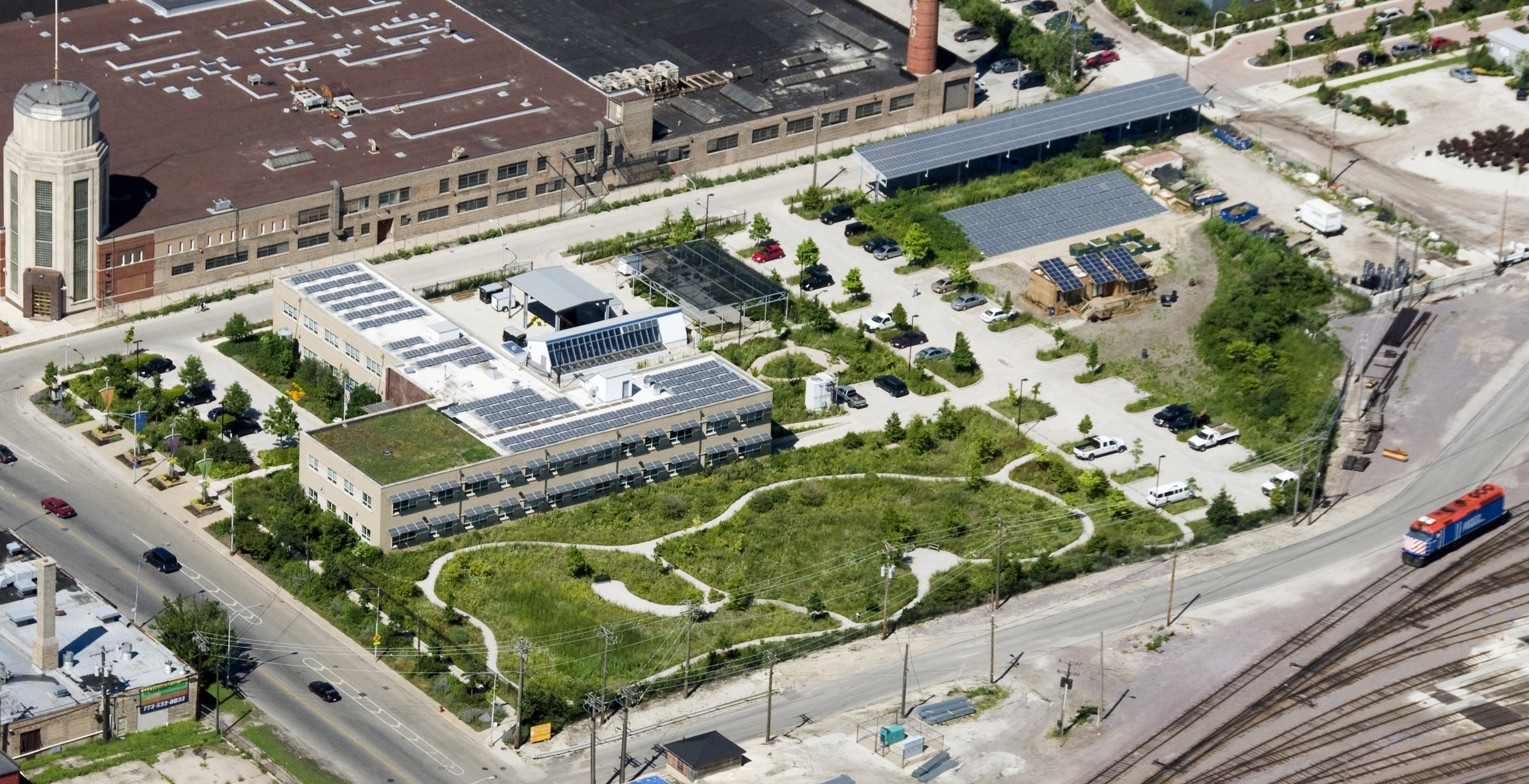
Chicago Center for Green Technology
A Pilgrimage Site for Environmental Expressionism
Developed as the flagship building of the City of Chicago’s Green Agenda, the Chicago Center for Green Technology (CCGT) renovated a 1950s industrial office building into the third certified LEED Platinum project in the nation—and the only one of its kind in the Midwest.
A former brownfield site, CCGT became home to the City’s Department of Environment and incubator office space for green job corps service and other sustainability-minded organizations.
In its 20 years of operation by the City, CCGT has served as a Chicago “Pilgrimage Site,” showcasing the cutting-edge green technology of its time and welcoming thousands of visitors from all over the world on tours, in classes, or beginning their green careers as job trainees.
Client: City of Chicago
Location: Chicago, IL
Role: Architect of Record
PEUI: 33kBTU/SF
Size: 34,000 GSF
Completion: 2003
Construction Cost: $14,400,000
-
Greenroof
Solar and geothermal power
Storm water filtering & management: bioswales, wetland, four cisterns
Test plots for community gardens
Greenhouse
-
LEED Platinum
-
AIA National COTE Top Ten, 2003
Chicago Building Congress Green Building Award, 2003
ASHRAE Engineering Accomplishment Award, 2006
-
IBC Engineering: MEP
site design group: Landscape Architecture
Tylk Gustafson Reckers Wilson Andres: Structural Engineering
Terra: Civil Engineering
CCGT demonstrates a comprehensive set of sustainable technologies that are deliberately and prominently displayed—a visual style we termed Environmental Expressionism.
Rooftop and window shade PV panels provide 20% of the building’s electrical demand. The HVAC system is anchored by 28 geothermal wells, the building use 40% less energy than a code-compliant building of the same size.
A green roof accessible to the public and multi-acre site bioswale treat rainwater runoff. Four large cisterns, combining for 12,000-gallon storage capacity, are connected to downspouts for use in site irrigation. The project was also the first LEED Platinum building to be served by public transit.
